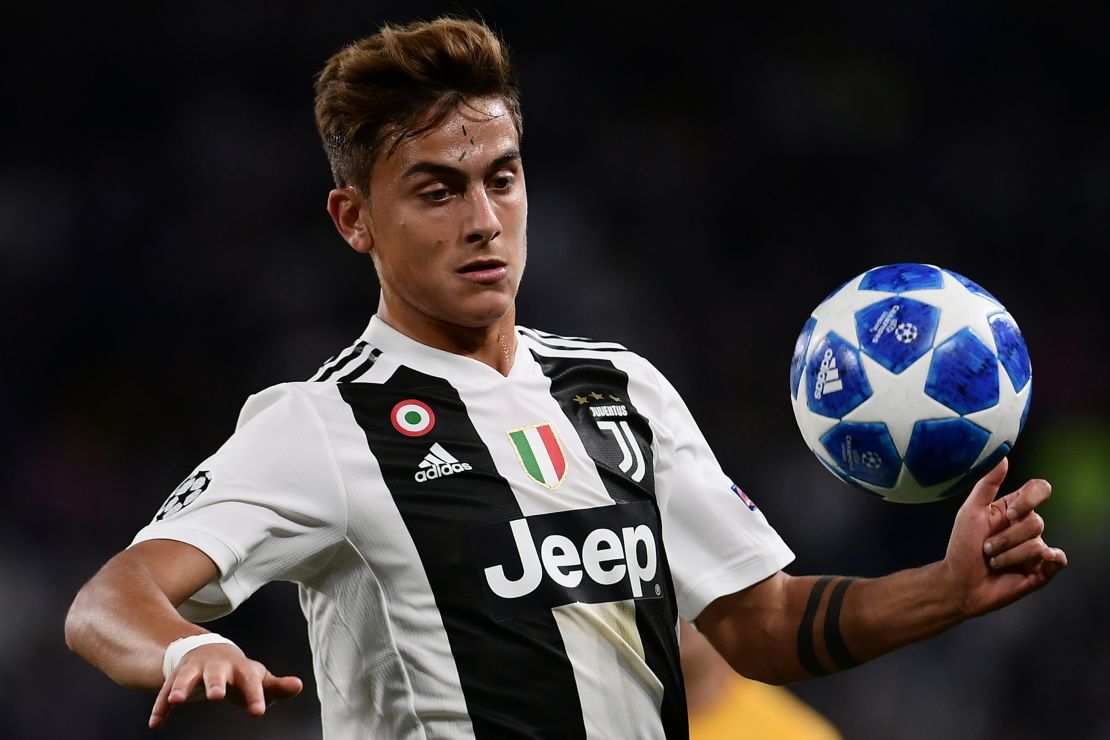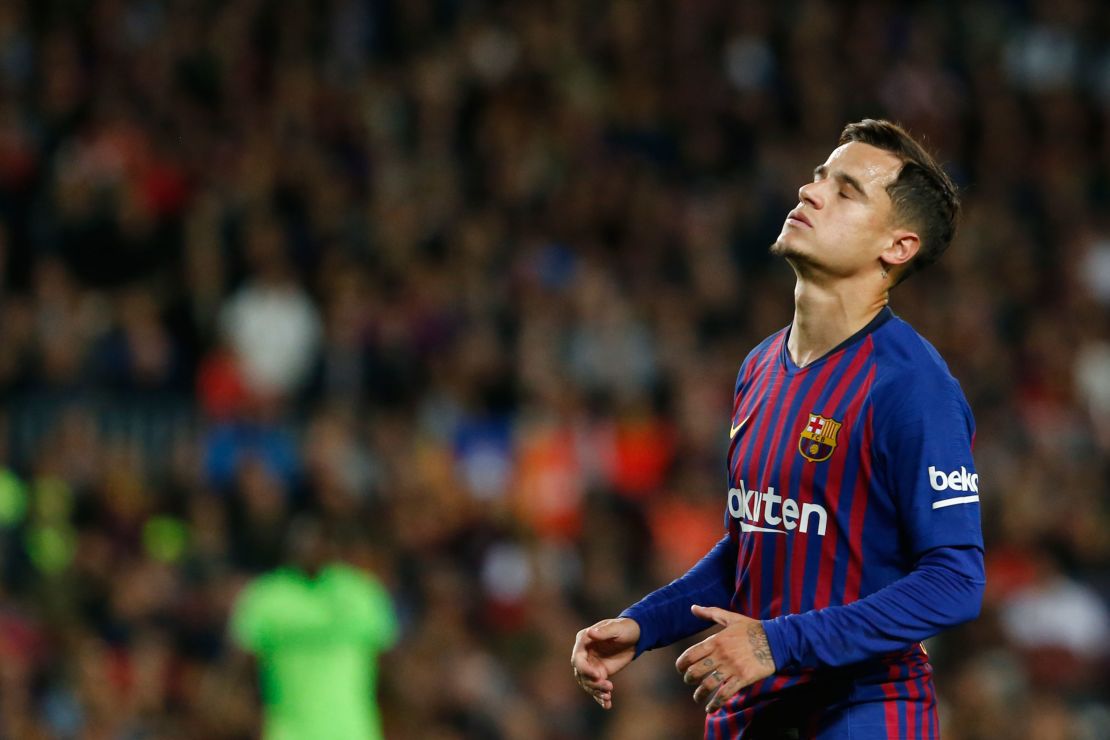It’s the day the dollars are splashed, headlines are made nerves are frayed, and football fans flock to their club’s stadium to surround television reporters in the desperate bid to catch a glimpse of a new superstar signing.
Soccer’s transfer deadline day has taken on almost a religious fervor in England as fans await news of a dramatic late signing before, to borrow one of the sport’s most overused cliches, “the transfer window slams shut.”
Driven by rolling news channels, an insatiable appetite for transfer rumors, deadline day itself has arguably become one of the most entertaining days in the football calendar.
In England, the world’s richest league, the transfer window for Premier League clubs closes at 5 p.m (12 p.m. ET) on Thursday August 8.

As the clock ticked down on Thursday the likes of Juventus star Paulo Dybala and Barcelona playmaker Philippe Coutinho are both being linked with a move to Tottenham, while Christian Eriksen is reportedly seeking a transfer away from the north London club with Spain his favored destination.
Then there’s Manchester United’s Romelu Lukaku, reportedly destined for a new adventure with Italian giant Inter Milan. And don’t forget Brazilian superstar Neymar at Paris Saint-Germain and Gareth Bale at Real Madrid whose futures remain uncertain with their respective clubs.
Rumor and speculation are rife, social media goes into meltdown and fans go through an emotional rollercoaster right up until the deadline, and sometimes hours after, as the final paperwork filters through.

Clubs in England’s top division have spent just over £1 billion ($1.2 billion) so far this summer, fractionally down on last year’s total of £1.2 billion ($1.46 billion), and £1.4 billion ($1.7 billion) in 2017.
Several Premier League sides such as Arsenal and Manchester City have smashed their own transfer records, while newcomers Sheffield United have done similarly on four separate occasions since winning promotion to the Premier League.
Aston Villa, which is back in the top-flight after winning the Championship playoff final, has reportedly spent over £130 million already ($158m).
And then there’s Manchester United, which broke the world record paid for a defender when it splashed out $97 million for Leicester’s Harry Maguire just this week.
But while the cash is being thrown around and the dramatic rhetoric surrounding deadline day grows ever more frenzied the reality behind the scenes is slightly more prosaic, according to David Seligman, a UK sports lawyer at Brandsmiths.

READ: Inside the world of the lonely megabucks soccer star
READ: Alejandro Bedoya on gun violence: “More needs to be done”
“It appears it has been left late, but it hasn’t been left late,” Seligman told CNN Sport when asked about all those apparent last-minute deals.
“Deals that happen on deadline day can be months in the making – it’s just that the deadline forces the parties to ultimately reach a compromise whether it’s on wages, the transfer fee or an agent’s commission.
“It might appear to the media that it has been done overnight but the player would have been tracked for a long time and they’ve possibly been speaking for a while.
“Usually a player’s personal terms are agreed with the club way before deadline day. The last thing that is agreed, which should probably be the first thing agreed in practice, is the amount the player is going to get sold for.”

According to Seligman, in some cases the player’s agent will already have advised a potential buying club of his client’s salary and bonus terms as well as the potential asking price.
“There’s no point in having a negotiation with a selling club if they haven’t agreed personal terms with the player or terms with the agent.
“The ballpark salary and commission are generally agreed before clubs enter into protracted negotiations regarding transfer fees otherwise you’d wasting your time.”

READ: German club sacks captain for displaying neo-Nazi sympathy
READ: Schalke chairman Clemens Tonnies faces calls to quit after making racist comments
While TV channels, live blogs and social media go into overdrive on deadline day, the reality behind the curtain can be just as stressful for those involved.
Phil Korklin, soccer agent and co-owner of UK-based Momentum Sports Management says it can be frantic with phones buzzing and Whatsapp messages flooding in.
“If you have deals on the go it can be hugely frantic, especially waiting for a club to give a player permission to travel for a medical,” Korklin told CNN.
“Then there’s the domino effect where a club is waiting to sign a player in order to let your player go. It’s just like a house chain but with a deadline.
“If one deal falls through, the whole chain falls apart and there can be a lot of unhappy players and clubs left in the lurch. So it all needs to be handled very carefully indeed, spinning lots of plates all at once.”

That deadline is almost upon England’s top division but other European leagues have a while longer to spend their millions.
Spanish, French and German clubs can buy until September 2 meaning some Premier League teams may be reluctant to let players go without being able to replace them.
Given Europe’s longer purchasing period, English clubs face a period of uncertainty after its own window closes with overtures for its star players from the continent’s biggest clubs a potential menace.
Sports lawyer Daniel Geey, author of “Done Deal: An Insider’s Guide to Football Contracts, Million-Pound Transfers and Premier League Big Business,” believes Premier League clubs could be left in a “Catch-22” by the early closure of the transfer window.

“There are at least a couple of situations where you take Christian Eriksen and Paul Pogba, who look like they are wanted by foreign teams,” Geey told CNN.
“It means their current clubs have a predicament which is whether they need to try and get a replacement in advance of the window closing because of the subsequent risk of them leaving.
“Reactively or proactively, this puts English clubs on a difficult footing. For English clubs, there is an advantage if in the medium term the push is then for European leagues to align.
Visit CNN.com/sport for more news, videos and features
“Ultimately, what has been the play from Premier League clubs previously is that they want all their business done by the time the season starts.
“Until that alignment happens, European clubs are potentially going to have a destabilizing effect on potential squad members because European windows are open.
“It’s a Catch-22. Clubs will be thinking whether they need to replace someone before the end of the window where a continental club can wait until the end of the month to force the issue.”
